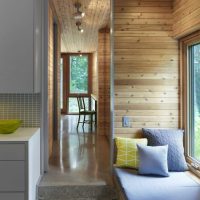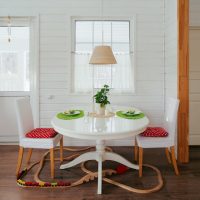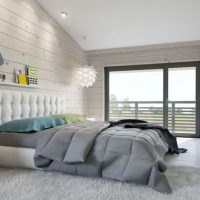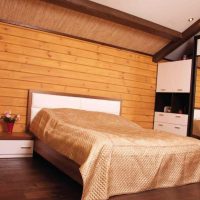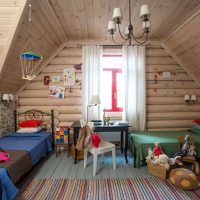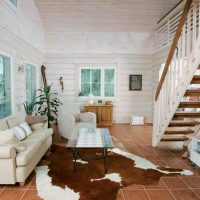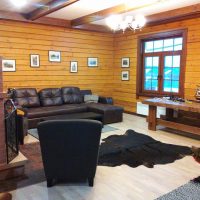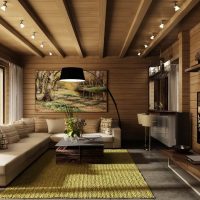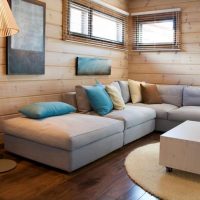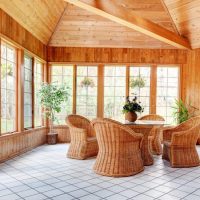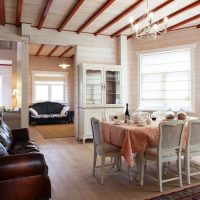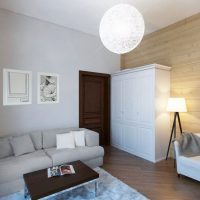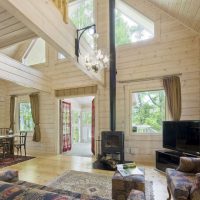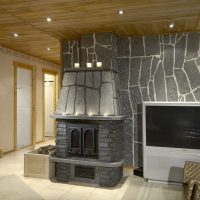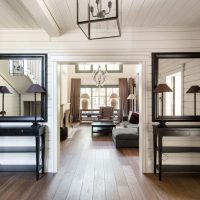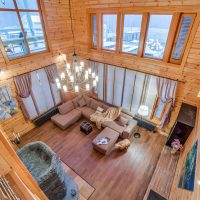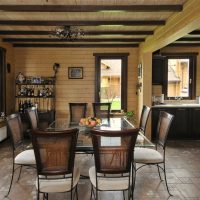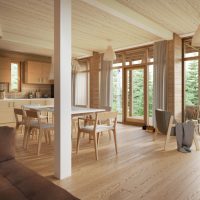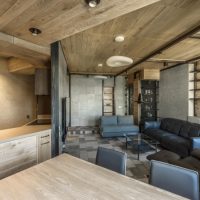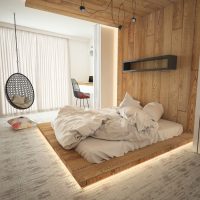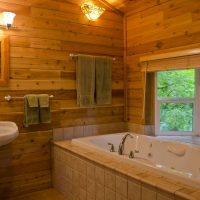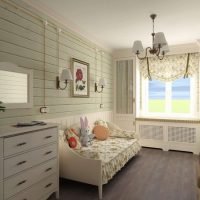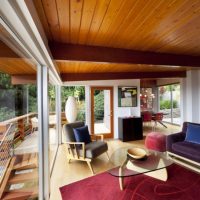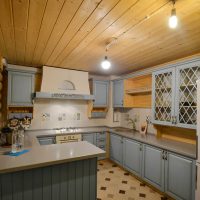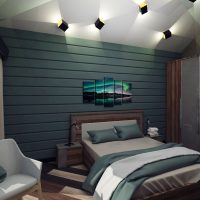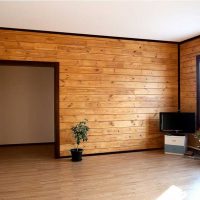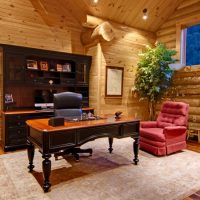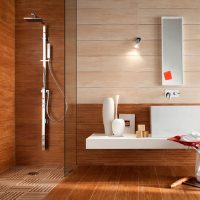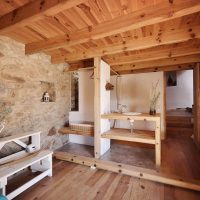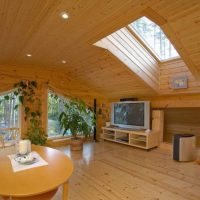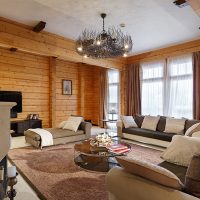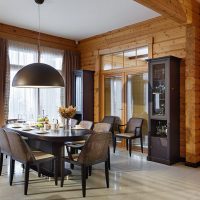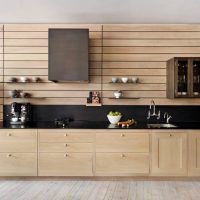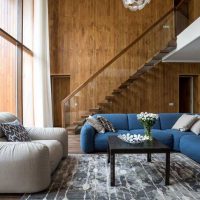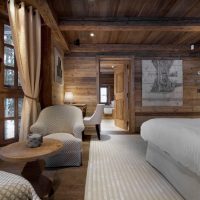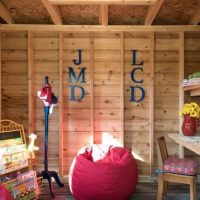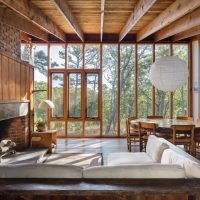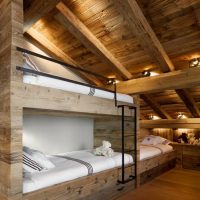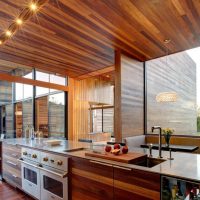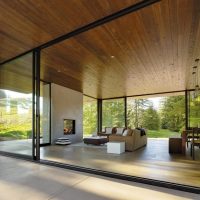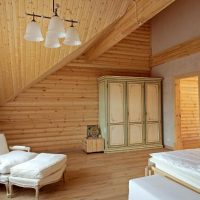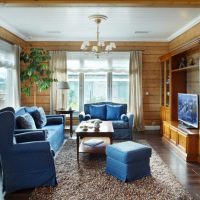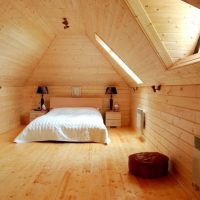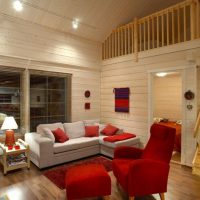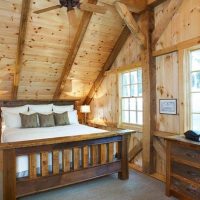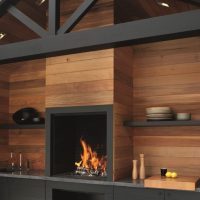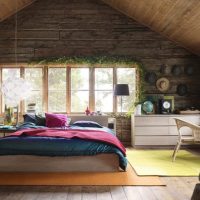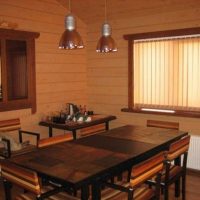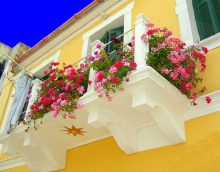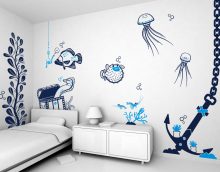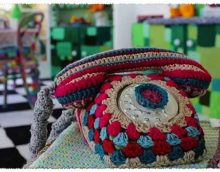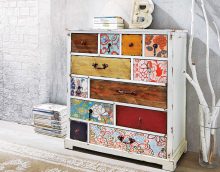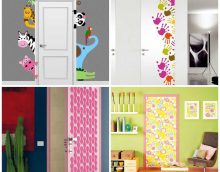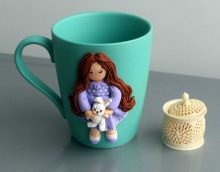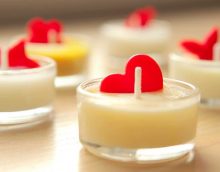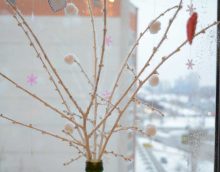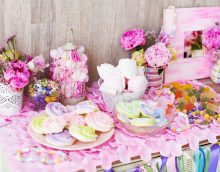What is imitation of a bar in an interior?
Wood is a wonderful material, beautiful, warm, pleasant to the touch. But in the modern world, its use in construction is often an impractical solution. Fortunately, there is a way out - the use of imitation timber for wall or ceiling cladding.
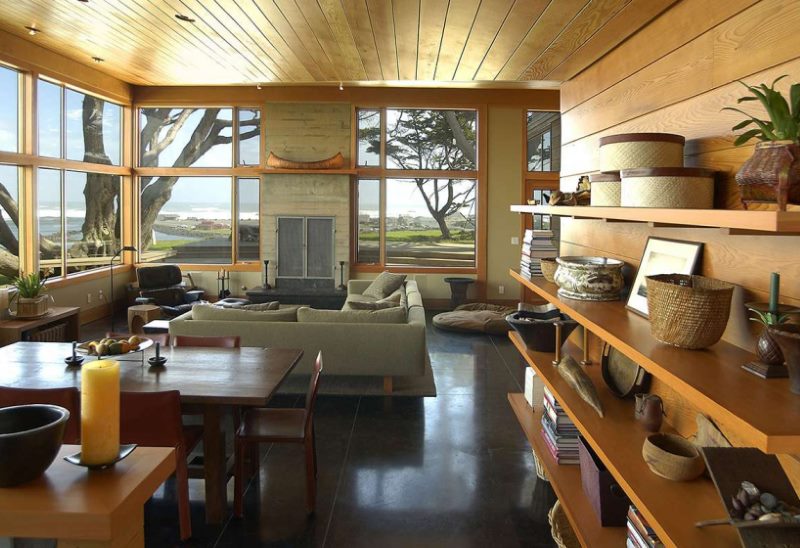
Natural wood - this is exactly what you need to radically transform the interior
This type of finish is a wooden board with a thickness of about 15-35 mm, mounted on the surface of the walls or ceiling using a steel or wooden frame. Externally, such panels are very similar to a profiled beam. With their help, a feeling is created that you are in a wooden house.
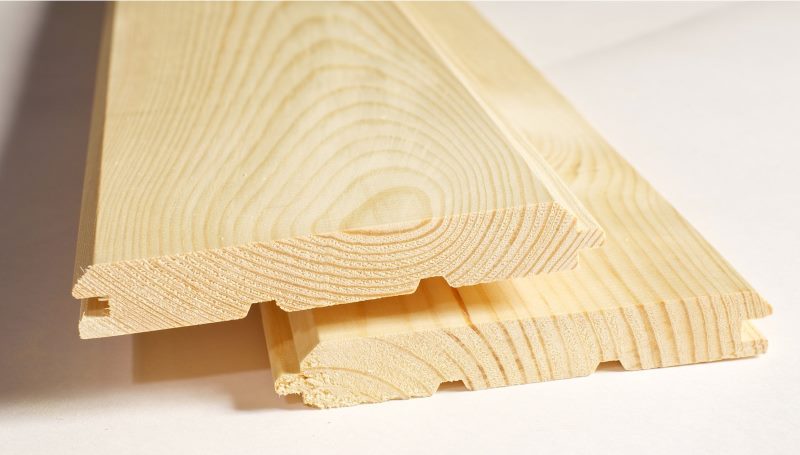
The false beam is a grooved board, carefully dried and sanded
Content
- 1 Pros and cons of this solution
- 2 Imitation of a bar from the point of view of interior design
- 3 Types of finishing materials used to simulate timber
- 4 The choice of material to simulate the beam
- 5 Do-it-yourself installation of timber imitation: a brief instruction
- 6 Video: imitation of timber in the interior
- 7 Photo: interior decoration of rooms using imitation of timber
Pros and cons of this solution
Wooden cladding imitating timber has a number of advantages:
- easy to install;
- has a pleasant smell;
- It boasts a beautiful unique texture;
- characterized by good thermal insulation properties;
- can last a very long time;
- It has great aesthetic potential.
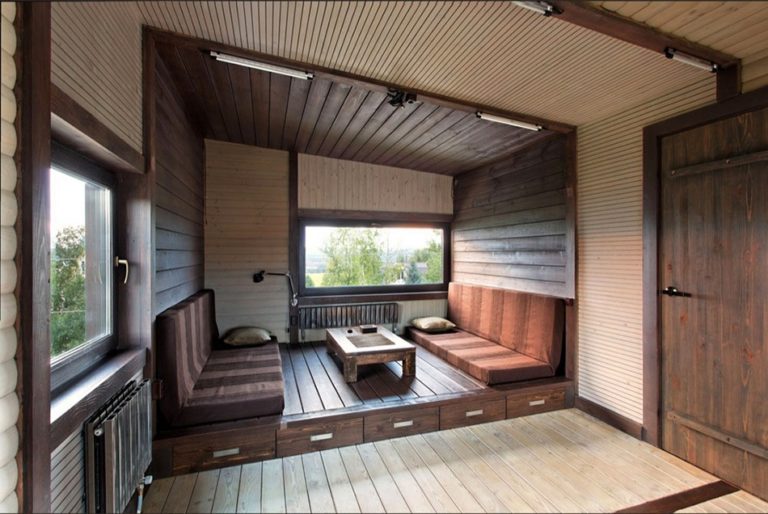
Imitation of a bar can be combined with other materials
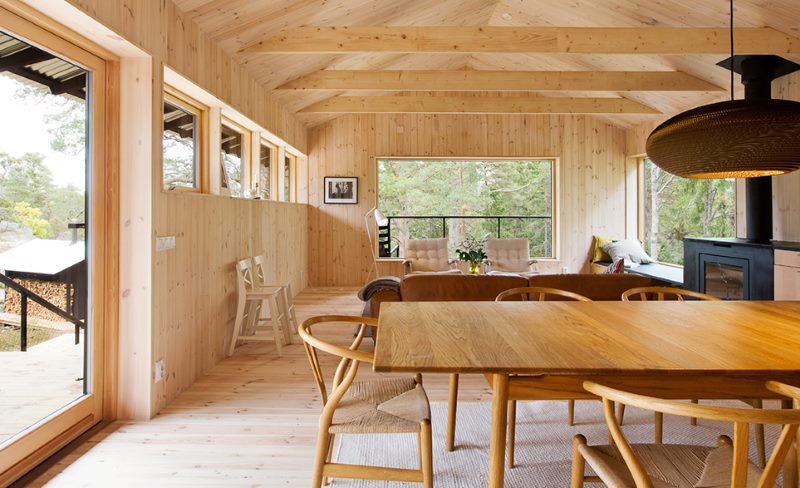
This finish always harmonizes well with wooden furniture.
Among the disadvantages is the relatively large thickness of the finishing layer.
Imitation of a bar from the point of view of interior design
Such an imitation in the field of modern design is now a very popular solution. It fits well with both modern and traditional styles.
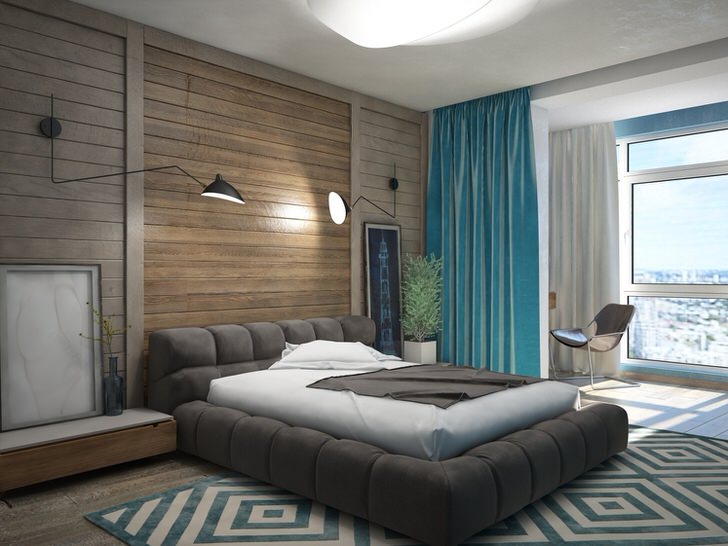
Bedroom decoration in a modern style
For example, imitation of timber remains an almost indispensable element for an eco-style based on the use of all natural and natural. Often, crisp graphics of wood surfaces fit into a minimalist interior. Country, Art Deco, ethnic styles also go well with timber or its imitation.
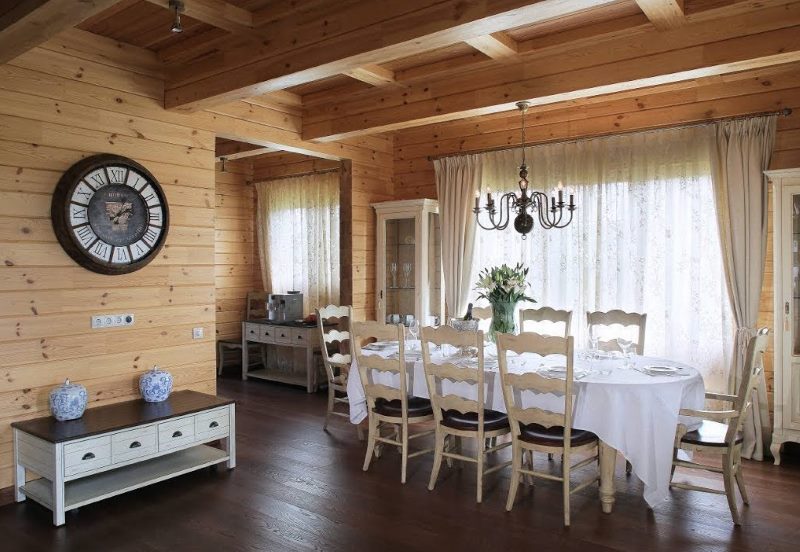
Country style can't do without wood trim
Types of finishing materials used to simulate timber
Imitation of a bar in the interior of a house can look very different depending on what specific type of material you choose. There are different possibilities.
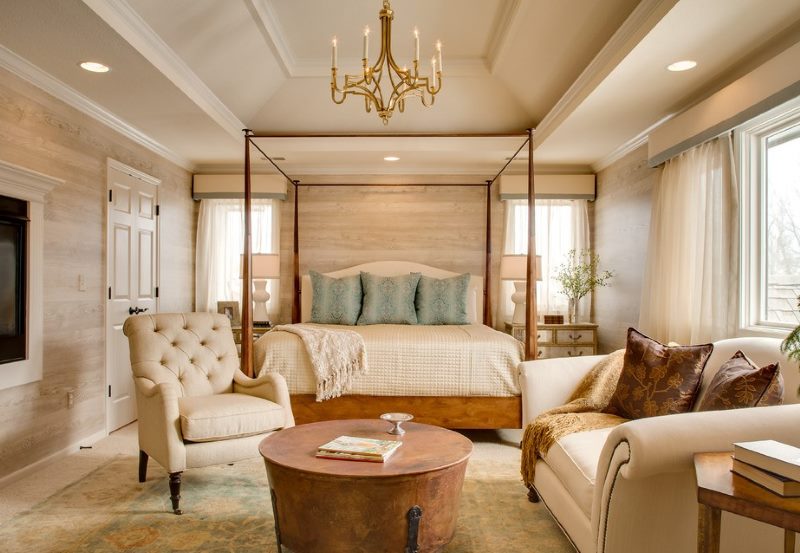
Facing the walls of the bedroom with imitation of a beam of pine
For example, for decoration use boards from different types of wood:
- from cedar;
- pine trees;
- larch trees;
- ate;
- oak;
- linden trees;
- alders.
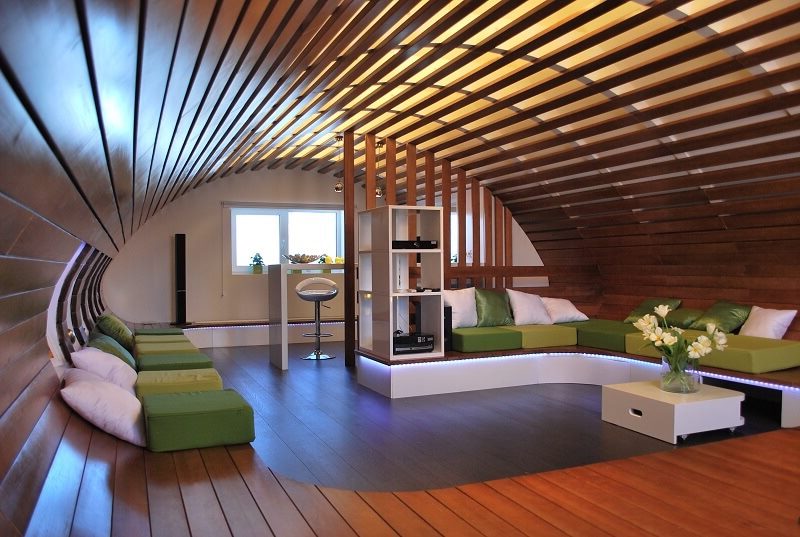
The original interior of the living room, sheathed in cedar imitation of timber
There are other options, however, it is these types of wood that are used to imitate the timber most often. The table shows a comparison of their main properties:
| Breed | Density (kg / m3 ) | Colour | Resistance to decay and fungal formations (class) | Where is better use | Price |
| cedar | 445 | heterogeneous brown-pink color, pronounced pattern | average | suitable for a nursery, bedroom, living room; not applicable in places with increased stability requirements the walls | medium |
| Pine | 500 | bright warm reddish-brown color, pattern not pronounced | average | suitable for a nursery, bedroom, living room; not applicable in places with increased stability requirements the walls | very cheap |
| larch | 660 | color varies from red-brown to light pink, the pattern is pronounced | high | permissible for use in any type of room, including kitchen, sauna, pantry | cheap |
| spruce | 445 | soft light yellow color, pattern not pronounced | low | suitable for a nursery, bedroom, living room; not applicable in places with high humidity | very cheap |
| oak | 690 | color varies from dark brown to golden, contrasting, pronounced pattern | high | permissible for use in any type of room, including kitchen, sauna, pantry | relatively expensive |
| Linden | 530 | golden beige, the pattern is often less pronounced | low | suitable for a nursery, bedroom, living room; not applicable in places with high humidity | relatively expensive |
| alder | 490 | golden reddish, pattern is weak | low | suitable for a nursery, bedroom, living room; not applicable in places with high humidity | medium |
Important. The density parameter is related to how much the tree is able to resist mechanical damage. The higher it is, the longer the decoration of the house will retain an attractive appearance.
As is clear from the table, this value is best for oak and larch. In their ability to resist decay, these two types of wood are also ahead of the rest.
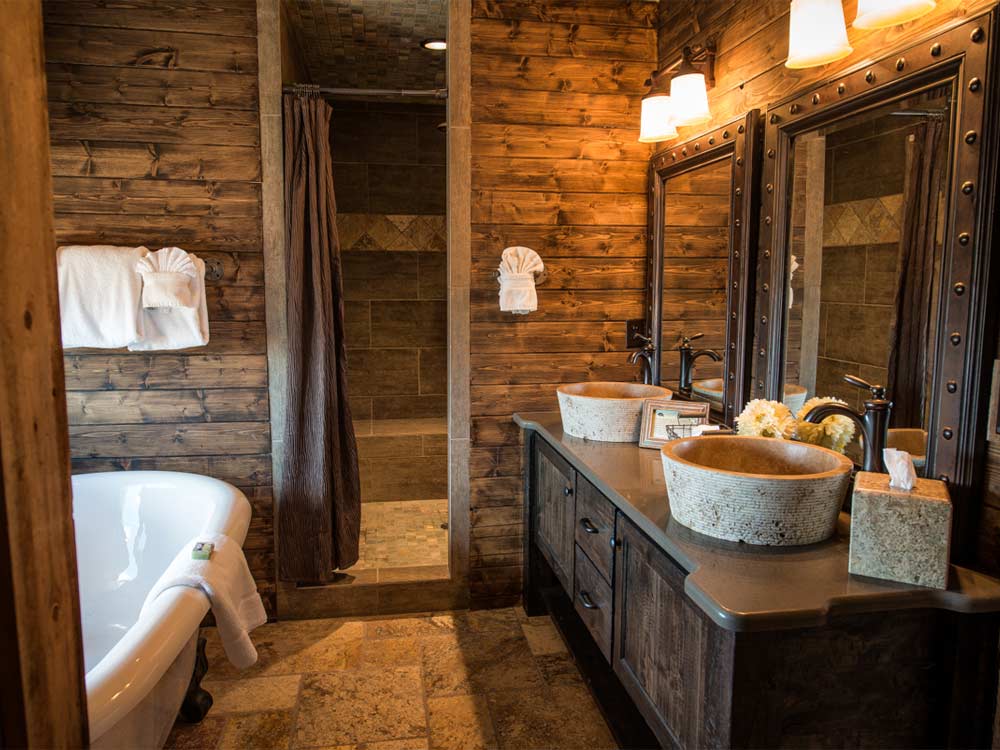
Larch is great for decorating the bathroom
But at the price the pine most attractive looks, which at the same time surpasses in a number of important characteristics the slightly more expensive larch, cedar and alder.
It is up to you to decide which type of material to simulate in your case.
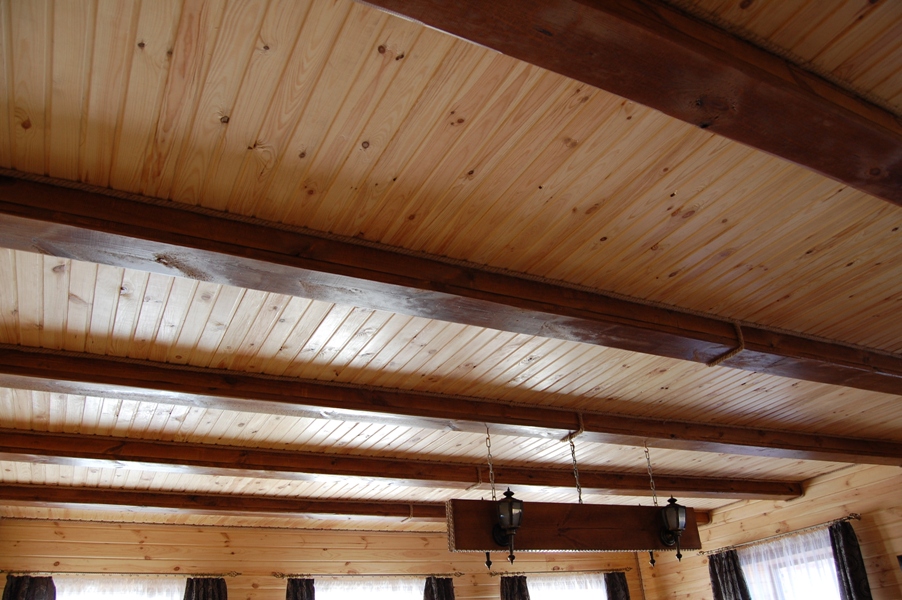
For the ceiling usually use inexpensive wood
Another parameter that distinguishes between the types of finishes used to simulate the beam is the size of the boards. Wider options look brutal, more reliable and are easier to install. However, for smaller rooms it is better to take thinner panels to visually expand the interior of the house.
The choice of material to simulate the beam
Each case is individual. It is up to you to decide what kind of cladding your home needs. However, there are several general patterns that it makes sense to consider.
Living room
For this room, the texture and color of the material is more important than its mechanical characteristics. In this case, the use of even active and dark shades is permissible; large boards. However, only if the area of the room allows it. For a small living room, it is better to dwell on a plain and dim imitation of a bar.
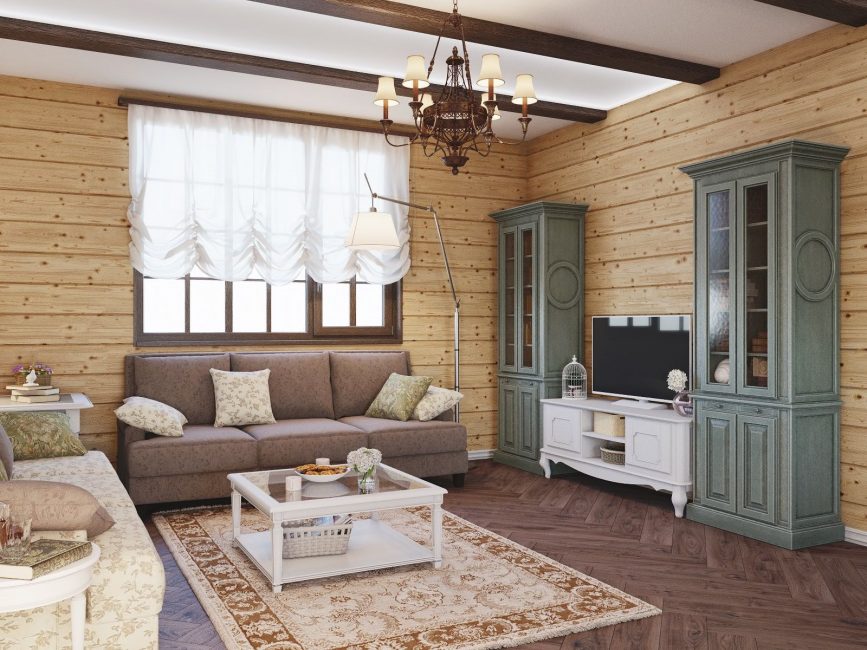
Classic style living room interior
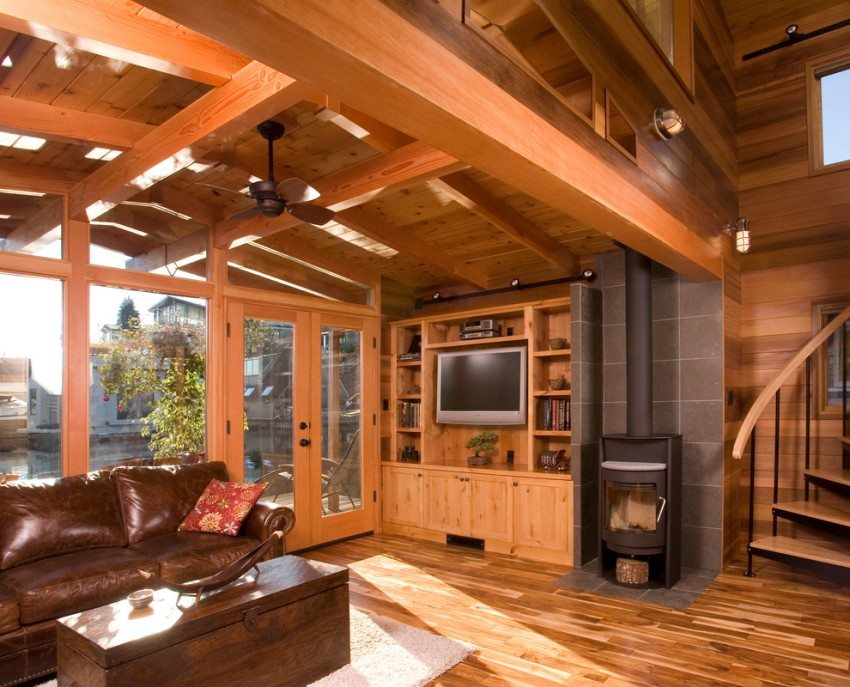
Beautiful and practical living room interior in a private house
Kitchen
A place for cooking requires the most resistant types of wood. After all, here the wall decoration will be exposed to steam, moisture, grease. In addition, in the kitchen it is recommended to use only light shades with a monophonic structure. More active design decisions of this room are much more difficult to make harmonious.
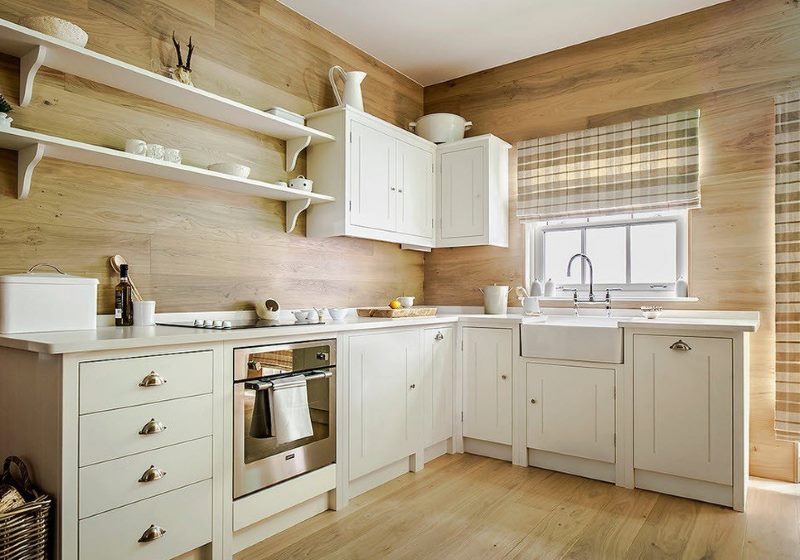
A successful combination of a light headset with wooden wall trim
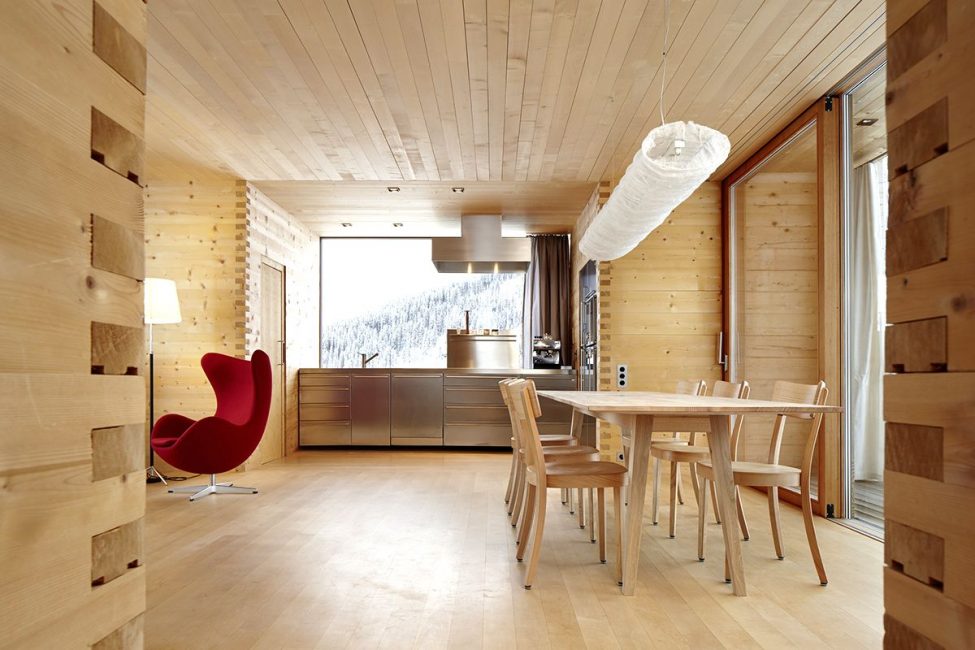
Stylish dining room with natural wood paneling
Bedroom
In this part of the house, it is permissible to use both dark and light versions of imitation timber. Both that, and another will look in a bedroom quite appropriately and effectively.
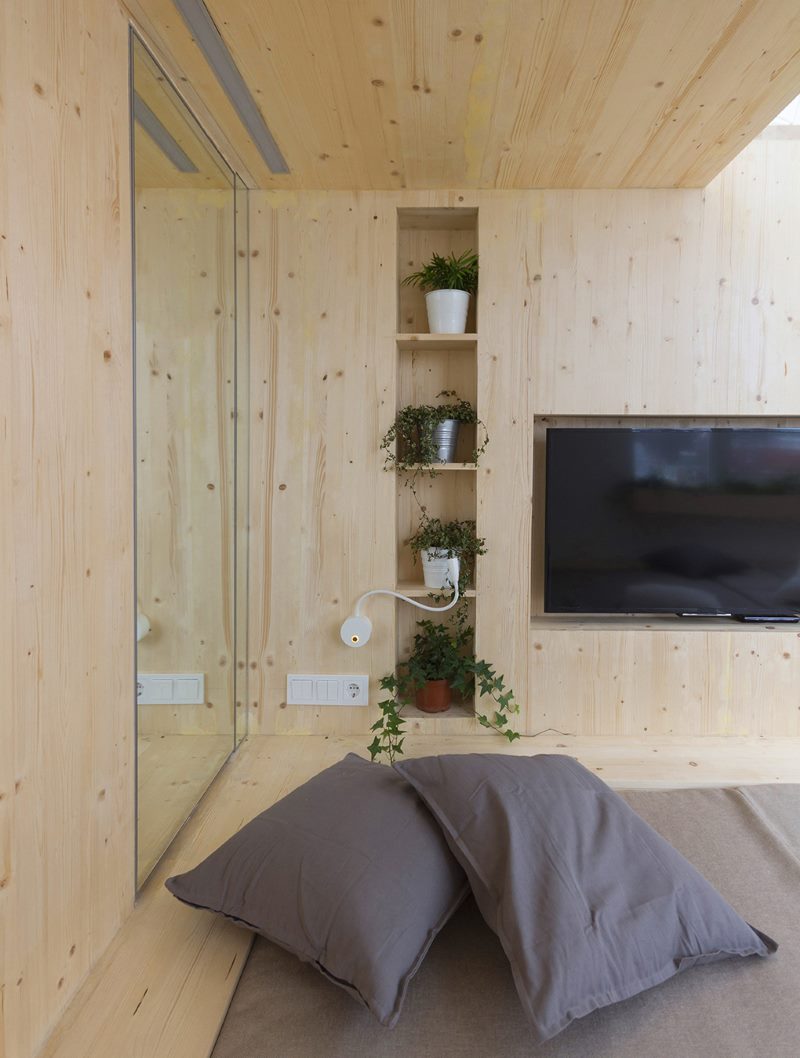
For a small bedroom it is better to use a light finish
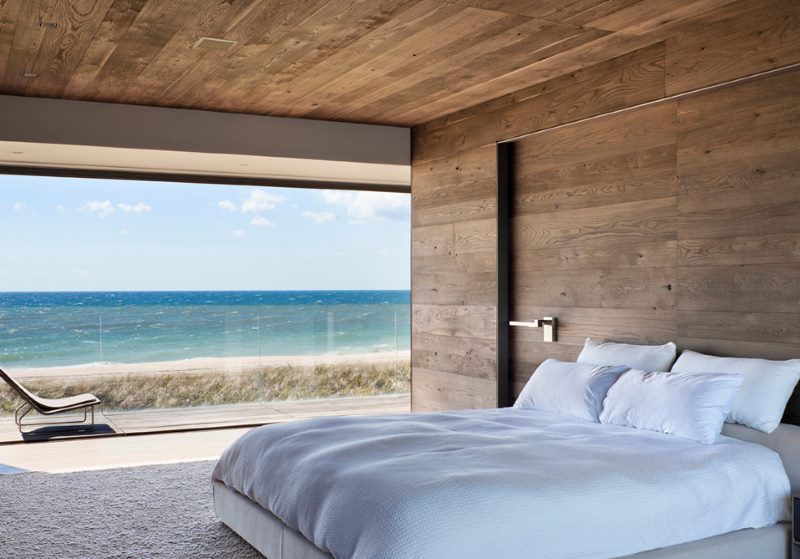
Dark colors make the room warmer and more comfortable
Corridor
In narrow spaces like a corridor, interior imitation of timber does not always look appropriate. However, if you choose the right kind of cladding, such a solution to the interior may well turn out to be successful. In this case, you should focus on light, even whitened panels of small width.
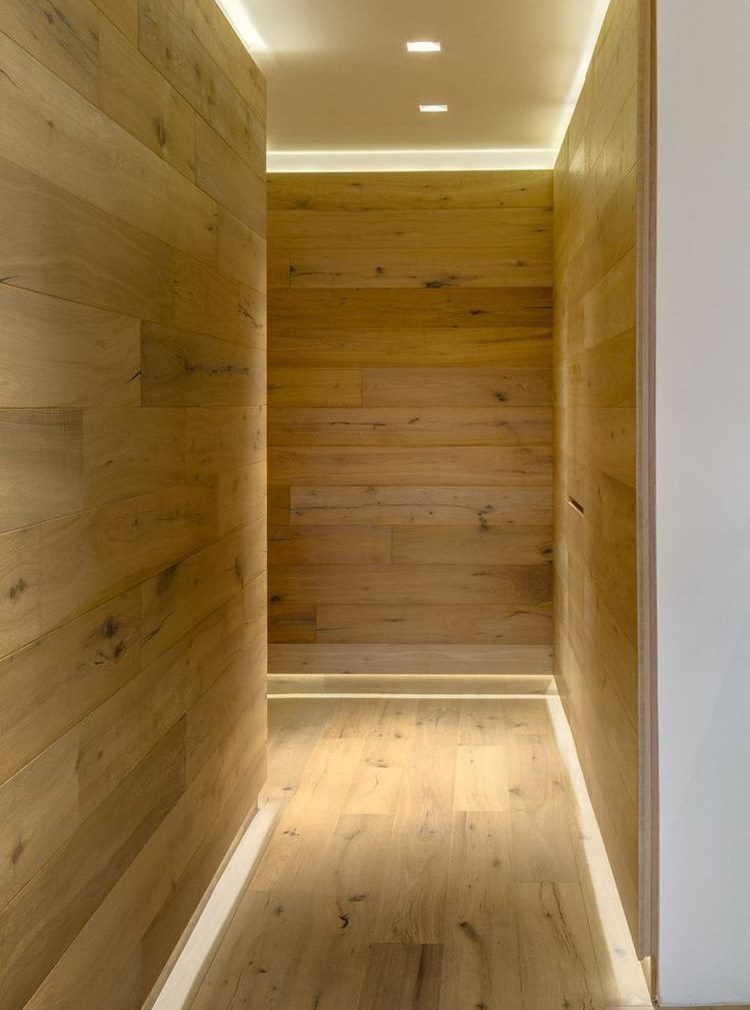
The original idea of highlighting a narrow corridor
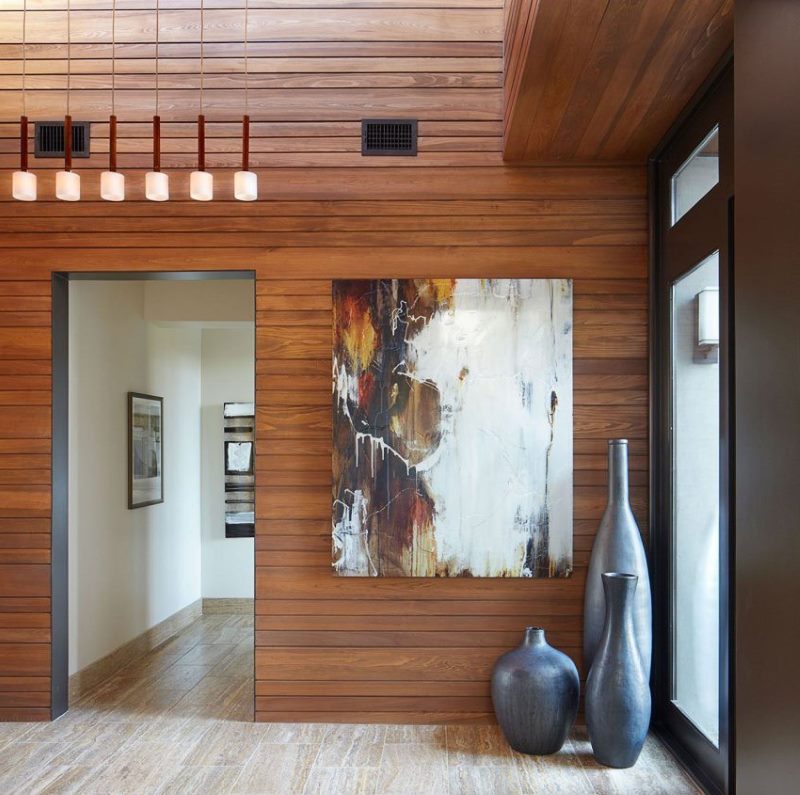
Entrance hall of a country house with imitation of fine wood
Library
Here, wooden cladding or its imitation is perfect. And it is better to choose a dark finish with a large texture.However, bright decisions also have a right to exist.
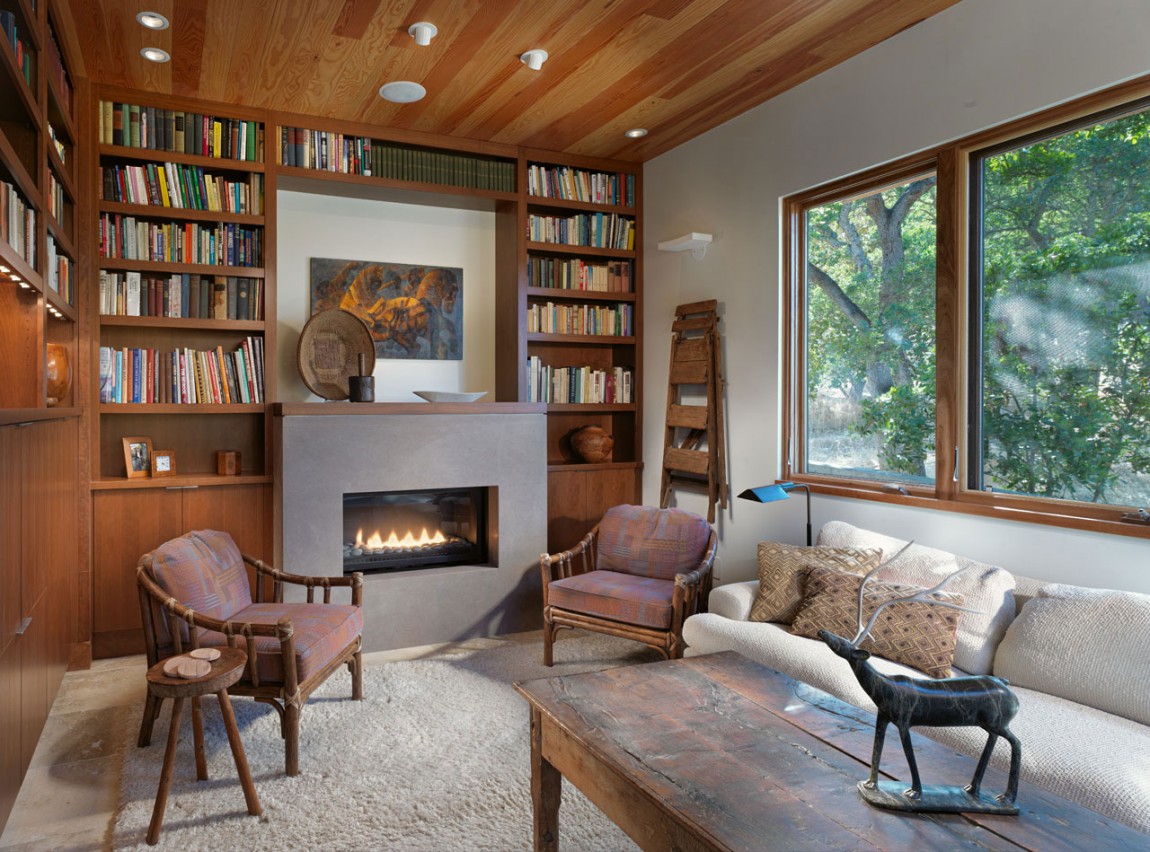
Cozy library with wooden ceiling
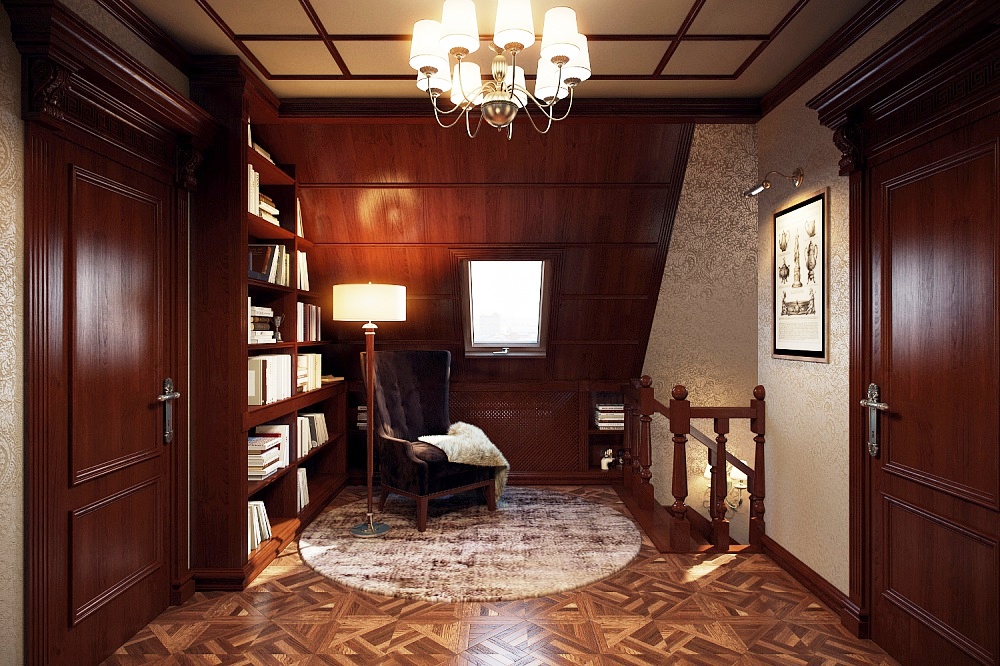
Attic library with sloping mahogany ceiling
In a word, imitation of a bar is suitable for the design of a wide variety of rooms and is a very versatile and interesting tool.
Do-it-yourself installation of timber imitation: a brief instruction
One of the advantages of this type of finish is the ease of working with it. You will be able to install it yourself if you follow a simple procedure.
Calculation of the required amount of material
You can simply calculate the surface area that you want to veneer and purchase raw materials based on this figure. Do not forget in this situation to subtract from the total value the area of window and doorways.
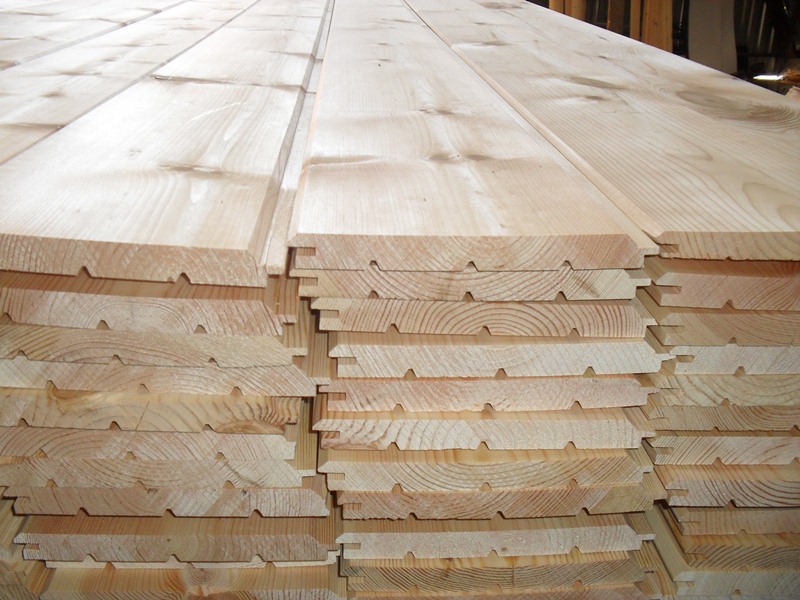
Material must be purchased with a small margin, taking into account defective and damaged boards
However, you will get a more accurate result if you figure out the layout of the panels in advance. That is, you draw the development of the walls, find out the size of the boards and draw how they will be arranged. Such a scheme will avoid errors.
Surface cleaning
There should be no dust, dirt or grease on the plane where you intend to mount the imitation beam trim.
Installation of vapor barrier
You need to purchase a special insulating film and attach it to the surface using a construction stapler. It is important to remember that the smooth side of the vapor barrier must abut against the wall.
Lathing device
The crate for this kind of simulation is made either from a metal profile or from a bar with a cross section of 25 by 25 mm. It is mounted vertically in increments of 50-80 cm with dowels or screws. It is recommended to use the building level.
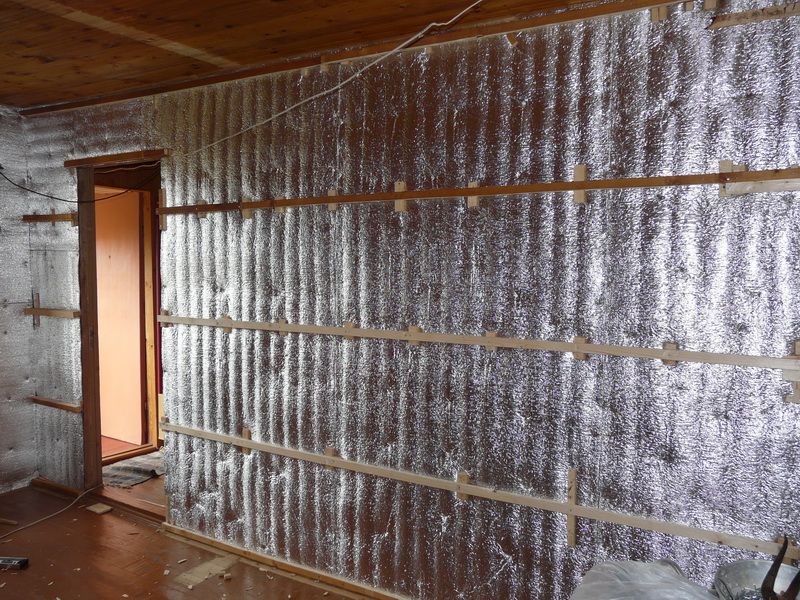
When the planks are facing vertically, battens are installed horizontally.
Set Simulation
After the crate comes the turn of the installation of imitation timber. This process should begin from below. Moreover, the position of the first, lowest, panel is very important to check with the help of a level - it should be strictly horizontal.
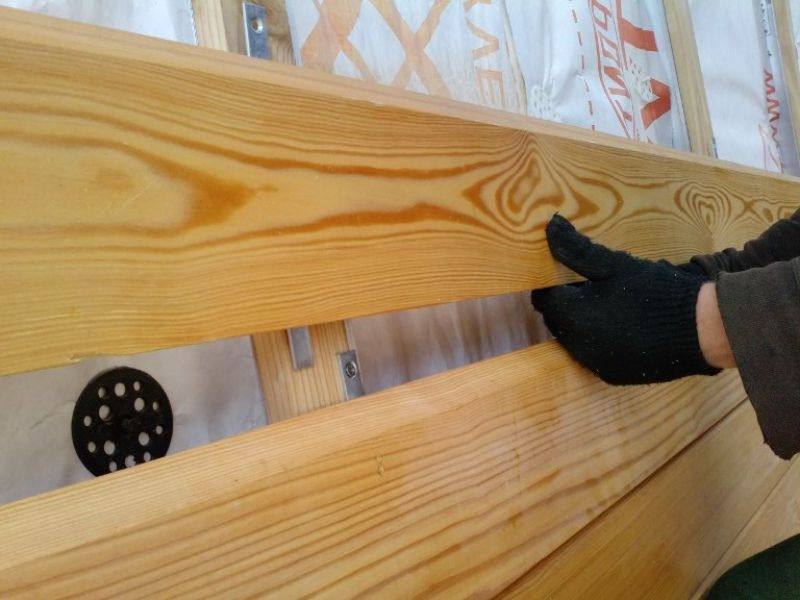
Installation is carried out from the bottom up, the first board is aligned in level
Finishing elements are attached to the crate with the help of special fasteners, kleimers. You can also use screws or nails, but then the process will take longer and require more accuracy.
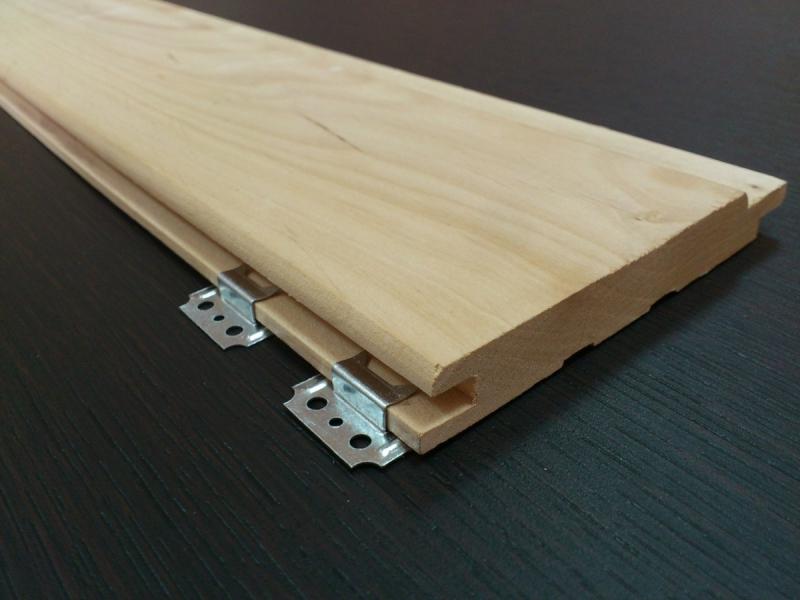
For installation, it is more convenient to use kleimers.
All subsequent panels imitating timber are fixed in the same way, moving from bottom to top, with gaps equal to 2 mm. The latter is necessary to prevent deformation of the coating.
Final processing
This stage is not always necessary. However, often after installation, the imitation of the beam is painted or varnished. This allows you to achieve interesting aesthetic effects, to make the decoration of your home easier to care for and durable.
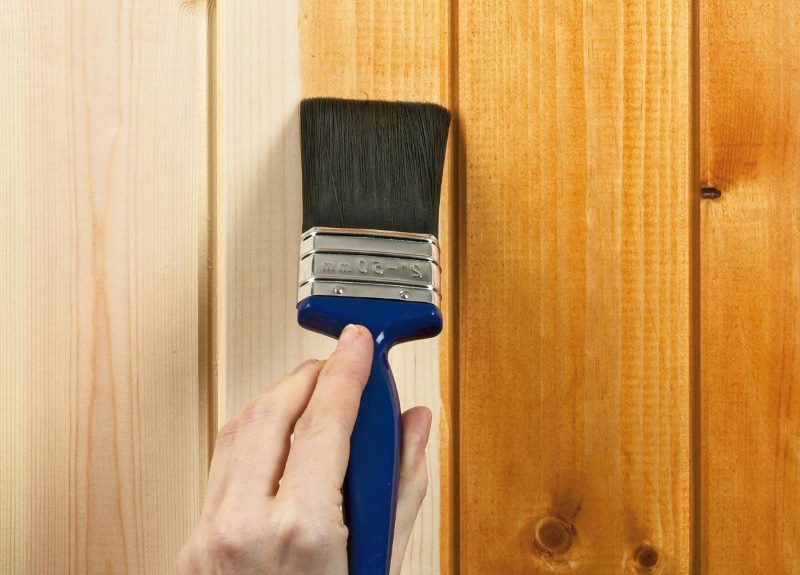
The surface of the boards can be coated with colorless varnish or stain
Correctly selected and neatly installed imitation of the beam can become a home decoration, give it coziness and emotional warmth.
Video: imitation of timber in the interior
